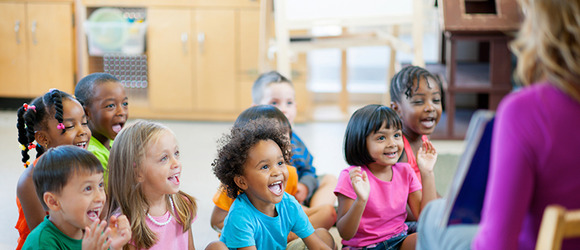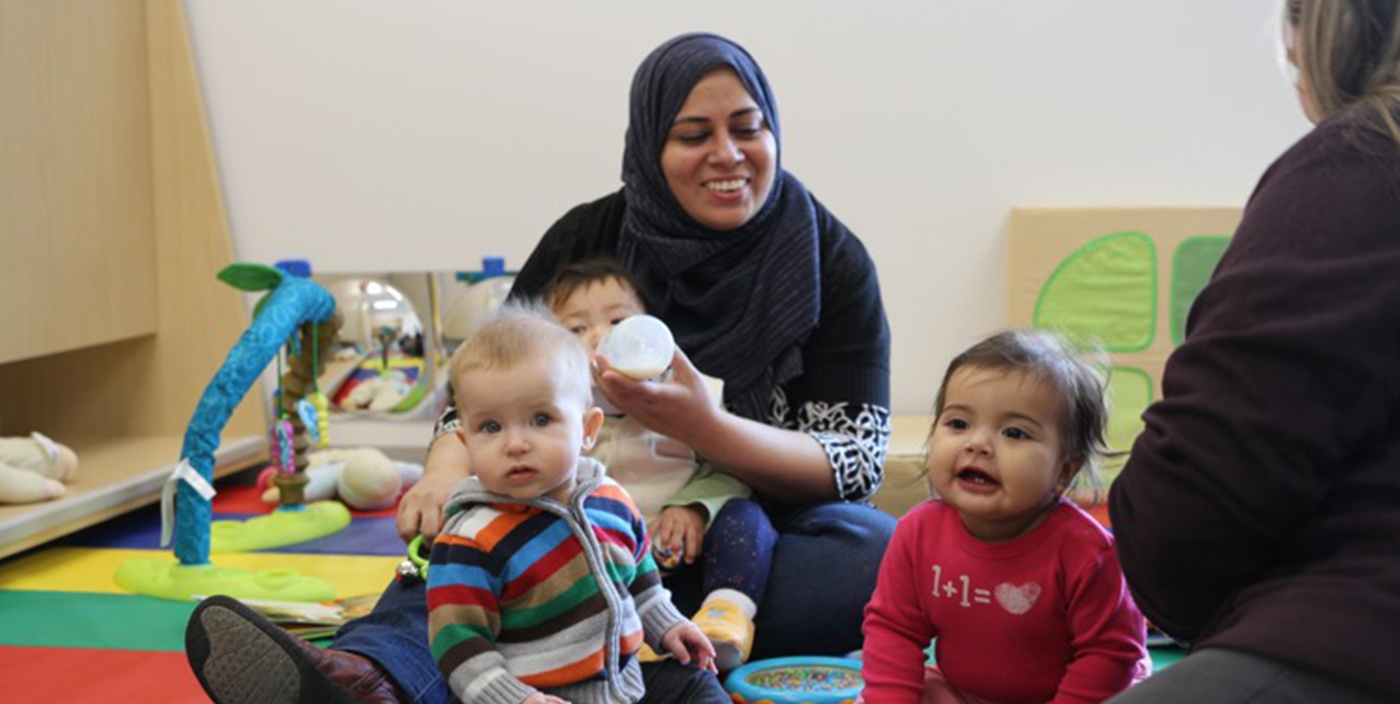Understanding the Significance of Daycare for Your Young child's Social Growth and Learning Experiences Via Involving Activities
The relevance of childcare in forming a toddler's social growth and learning can not be overstated, as it uses a structured environment filled with appealing activities that are essential for very early development. As we check out the complex benefits of daycare, one should think about just how these fundamental experiences influence a kid's future social communications and general development.

Benefits of Social Communication
Social interaction plays an essential role in the developmental trajectory of young children, functioning as a structure for essential social abilities. Engaging with peers permits young children to practice communication, discover to reveal their emotions, and develop compassion. Via shared play and participation, they begin to recognize social norms, such as taking turns and sharing, which are essential elements of effective interpersonal partnerships.
In addition, social interactions contribute to cognitive advancement. As young children connect with their peers, they improve their language skills, broaden their vocabulary, and boost their capability to verbalize feelings and thoughts. This exchange of concepts fosters critical thinking, as kids find out to discuss, solve problems, and navigate conflicts.
Furthermore, social communication advertises psychological law. Exposure to various social circumstances helps kids identify and manage their feelings, eventually causing higher resilience and adaptability. The ability to form friendships and add-ons likewise enhances their sense of belonging and self-esteem, which are essential for overall well-being.
Importance of Engaging Activities
Involving tasks are crucial for cultivating a revitalizing environment that enhances toddlers' social development. These tasks not just astound young kids's interest yet additionally promote active engagement, permitting them to explore their environments artistically. Via play-based understanding, kids establish crucial abilities such as problem-solving, participation, and empathy, every one of which are crucial for developing healthy relationships with peers.
Taking part in appealing tasks, such as team games, art tasks, and interactive storytelling, urges toddlers to reveal their sensations and concepts. This expression is important for emotional intelligence and helps them recognize the viewpoints of others. When kids engage in these tasks with each other, they discover to negotiate duties, share resources, and work together, which are fundamental facets of social interaction.
Additionally, a well-structured atmosphere that includes varied and stimulating tasks helps in maintaining toddlers motivated and focused. This inspiration promotes a love for finding out and exploration, laying the structure for future educational experiences. Ultimately, involving activities in daycare setups are crucial in forming social skills, preparing kids for effective communications past the class, and nurturing their general development during these developmental years.
Developing Communication Abilities
Reliable interaction abilities are crucial for toddlers as they browse their early social communications. In a childcare setup, children are subjected to diverse social circumstances that urge non-verbal and verbal communication. Involving in discussions with caregivers and peers fosters language development, enabling toddlers to reveal their feelings, needs, and thoughts extra efficiently.
:max_bytes(150000):strip_icc()/GettyImages-956997658-af489cbf5e3b4a2cbe26e2e78016a0a2.jpg)
In addition, day care environments supply chances for toddlers to simulate and observe communication designs of their adults and peers. This empirical understanding is important as kids detect social cues, tone, and body movement, which are essential elements of reliable interaction.
Promoting Independence and Confidence
As toddlers improve their interaction abilities, they at the same time begin to discover their self-reliance and develop self-confidence in social setups (infant daycare near me). Childcare offers a structured setting where youngsters can participate in various activities that motivate autonomy. From choosing their own tasks to taking part in group tasks, these experiences equip kids to make choices and express themselves
In a daycare setup, children are often presented with chances to address troubles separately, whether it's figuring out exactly how to share playthings or settling conflicts with peers. This cultivates critical thinking and promotes self-direction. In addition, caregivers sustain this development by supplying favorable reinforcement and guidance, assisting youngsters to browse social communications with confidence.

Group tasks, such as cooperative games or collective art jobs, facilitate team effort and educate kids the value of interacting. With these interactions, children find out to interact their thoughts and sensations, further enhancing their self-worth and social abilities.
Inevitably, cultivating freedom and self-confidence in day care not only prepares kids for future social settings but also lays the foundation for a resilient frame of mind, outfitting them with crucial life abilities as they continue to expand and learn.
Structure Lifelong Discovering Structures
A solid foundation for long-lasting learning is critical for toddlers, as their very early experiences form their mindsets towards education and learning and interest. Day care settings play a pivotal function in this developing phase by giving structured possibilities for expedition and involvement. Engaging activities, such as group play, crafts and arts, and interactive storytelling, boost cognitive advancement while urging social communication.
Through these experiences, kids learn essential abilities such as problem-solving, interaction, and collaboration. They are presented to the idea of learning as an enjoyable, collaborative procedure as opposed to a job, which cultivates a favorable attitude towards education and learning. Direct exposure to varied viewpoints and peer communications in childcare settings boosts emotional intelligence, advertising compassion and baby daycare near me durability.
Caregivers and teachers likewise add dramatically to constructing this foundation by modeling interest and enthusiasm for discovering. By motivating inquiries and helping with conversations, they produce an atmosphere where children really feel secure to share themselves and check out originalities. Inevitably, the mix of helpful relationships and appealing activities in childcare settings prepares for a lifelong love of learning, furnishing young children with the skills and attitude essential for future academic and individual success.
Final Thought

The relevance of childcare in forming a toddler's social advancement and knowing can not be overemphasized, as it offers an organized atmosphere filled with appealing tasks that are essential for very early development.Social communication plays a vital role in the developing trajectory of young children, offering as a foundation for crucial social skills. When kids involve in these activities together, they discover to work out duties, share sources, and work together, which are fundamental facets of social communication.
Inevitably, engaging activities in childcare setups are essential in forming social abilities, preparing young children for effective interactions past the classroom, and nurturing their overall advancement throughout these formative years.
Inevitably, the advantages of interesting tasks in daycare setups play a considerable function in preparing kids for future social communications and difficulties. toddler daycare near me.